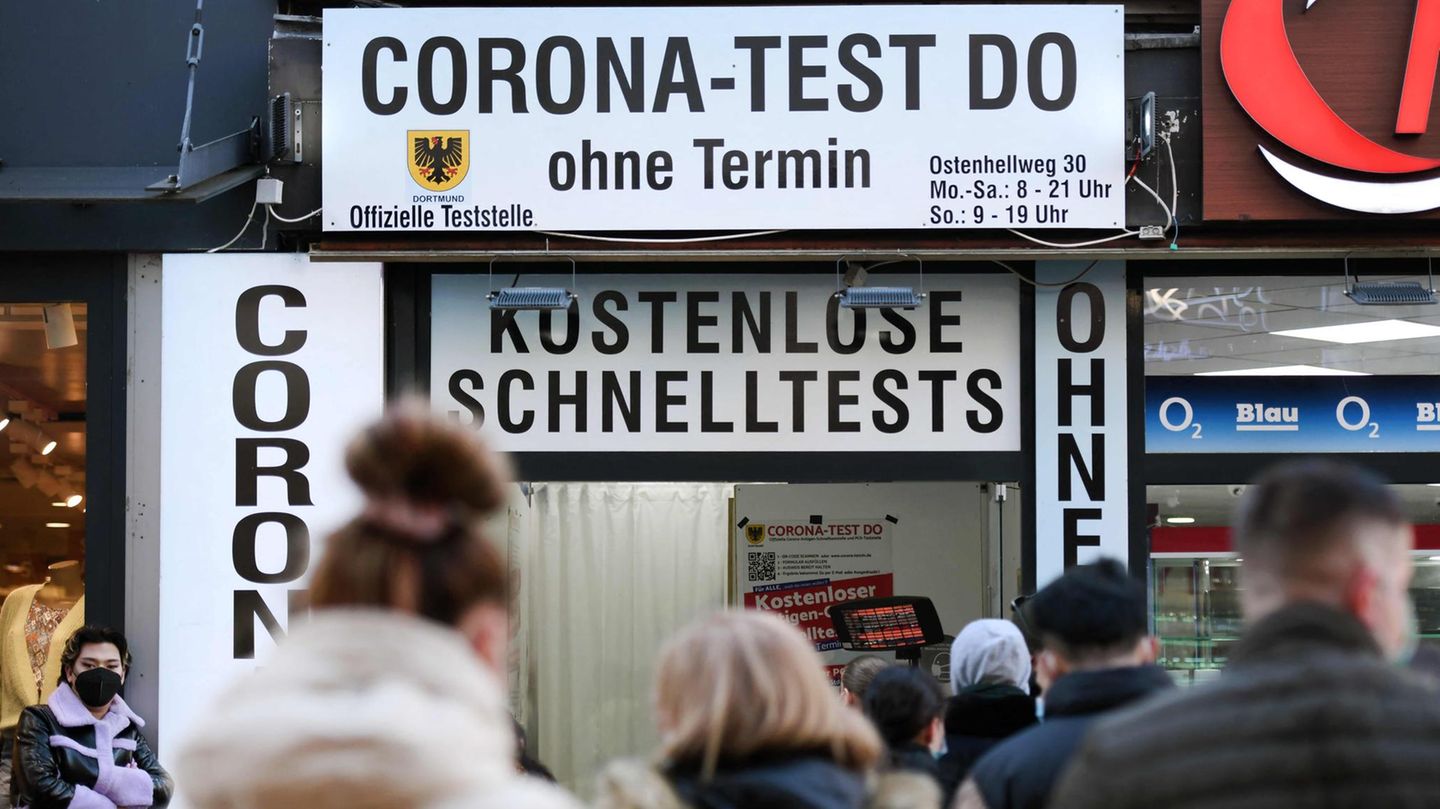The test regulation expires at the end of June. For citizens, this means corona tests that are subject to a fee again. And it gets the operators of the test centers in trouble: Anyone who keeps their shop open is primarily doing so with foresight – but they have to be able to afford it.
It’s summer, the corona measures are more relaxed than they have been in the last two years. Masks are almost no longer needed, and more and more people are meeting up again to celebrate. It almost looks like normal life is returning from before the pandemic. But caution is advised. In countries like Portugal or Austria, the incidences are increasing again massively thanks to the new virus variant BA5. There is a similar threat in Germany – even if politicians do not expect the next wave until autumn.
You want to be prepared for this – but before that, you save on another effective means in the fight against the pandemic. The current test strategy expires at the end of June. This means that the free citizen tests are no longer paid for by the federal government. This poses the question for many test center operators as to whether they should continue to offer citizen and PCR tests over the summer or whether they should close for the time being. “People are used to not having to pay for their tests themselves,” says Marcus Reisiger star. He runs a private test center in a shopping center in Hamburg and fears that fewer people will be tested if they have to bear the costs themselves.
At the same time, demand has been falling for weeks, as current ones show. The institute reported the last high in the last week of March. At that time, more than two million people in Germany were still being tested. A month later, it was just over a million tests within a week. And at the end of May, the number had even more than halved to 496,484. The reason: more and more corona measures are no longer being taken, tests, for example for travel, are only rarely mandatory. This is one of the reasons why Reisiger was already planning to close his center after June 30th. In the past week alone, 20 people a day have been tested at his test center. Financing premises, materials and staff for four months with such low demand is hardly profitable.
“Testing opportunities are incredibly important”
Inés Faghihi, head of the Corona Test Center at the University of Bremen, is also dealing with the same questions. Unlike her Hamburg colleague, the need here is even higher. According to the information, 300 to 400 quick tests are still carried out in the Bremen test center every day. The operators have decided to leave the test center open over the summer.
The reason is simple: When the test regulation expired last year, the operators had to decide “whether we close or stay open with minimum capacity,” says Faghihi dem star. Although demand had fallen sharply and customers had to pay for their tests themselves, it was possible to operate cost-effectively. When the test regulation was reintroduced due to rising incidences, the number of daily tests rose from 100 to 1000 within a very short time. “This showed us that the demand for testing was definitely there and that testing opportunities were incredibly important. The fact that we were still open and only had to increase resources was a clear advantage,” says Faghihi.
It takes time to restart a closed test center. And it’s not as easy as politicians think it is. According to the center operators, it can take three to four weeks just to recruit new employees, train them, find suitable premises and procure the materials – if everything goes well. “It’s impossible to start up a test center within a week,” Reisiger sums up. Even finding a suitable room is complicated. “You have to present a concept for the entrances, maximum number of people, CO2 content and ventilation,” he lists.
Restaurant instead of Corona test center?
The operators in Bremen were only able to react to the sudden demand last autumn because the infrastructure and some of the experienced employees were still available. “It would have been impossible for us to manage 1,000 tests without trained and, above all, well-rehearsed staff and clear processes,” says Faghihi. Therefore, further testing is carried out at the University of Bremen.
But you are also prepared for a possible end: Anyone who has been tested can write on a piece of paper at the exit what should happen to the premises if the test center no longer exists. “An initial evaluation has shown that customers primarily want gastronomic establishments,” said Faghihi. Pharmacies and drugstores are also among the candidates. “We try to be prepared for all eventualities. If the test regulation expires and the demand for tests suddenly disappears, we can start the next project straight away.”
However, there is still no sign of the end of the “Test Center” project. According to the RKI, the incidence is also increasing in Germany because of the new omicron variant. “The continued strong growth of BA.4 and BA.5 suggests that in a few weeks these variants will account for the majority of detections using genome sequencing in the sample,” says the institute’s report. Increasing numbers of infections are likely because these According to the Association of Accredited Laubore, variant BA5 already accounts for 40 to 50 percent of all corona infections.
Test regulation may be extended after all
Reisiger is therefore struggling as to whether he should really close his test center over the summer. The rate of positive rapid tests has recently increased from less than five to ten percent. That is why the number of daily PCR tests has increased from 20 to 50. It is important to leave the test centers open in order to be able to continue to monitor the infection process. He fears that if the test centers are closed, the real infection situation will only be apparent from the hospital admissions very late. “We will be extremely behind the times because the test centers report no or only a few positive PCR tests to the RKI.” Faghihi also does not consider the abolition of the test regulation to be sensible. However, both assume that this will be extended beyond June 30th.
A spokeswoman for the Federal Ministry of Health confirmed the same when asked star. “The decision on a further extension of the test regulation and the right to citizen tests and tests to prevent the spread of the coronavirus SARS-CoV-2 is being voted on within the federal government,” read the written answer.
Source: Stern
David William is a talented author who has made a name for himself in the world of writing. He is a professional author who writes on a wide range of topics, from general interest to opinion news. David is currently working as a writer at 24 hours worlds where he brings his unique perspective and in-depth research to his articles, making them both informative and engaging.




